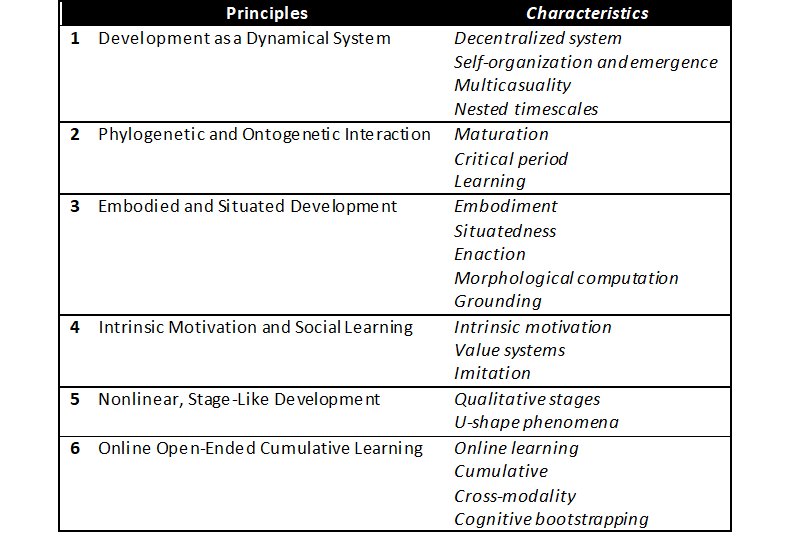Field that combines insights and methods from Artificial Intelligence, as well as cognitive and biological sciences, to Robotics
What is Cognition Anyway? Cognition is the process by which an autonomous system perceives its environment, learns from experience, anticipates the outcome of events, acts to pursue goals, and adapts to changing circumstances
Cognitive Robotics often model problems based on Marr’s Levels of Abstraction
Approaches
- Developmental Robotics
- Evolutionary Robotics
- Swarm Robotics
- Soft Robotics
- Neurorobotics
Developmental Robotics
- interdisciplinary approach to the autonomous design of behavioral and cognitive capabilities in artificial agents that takes inspiration from the developmental principles and mechanisms observed in natural cognitive systems
- how the organization of a single robot’s control system develops through experience, over time.
- Developmental Psychology

- Genetic Epistemology → Nonlinear, Stage-like development
Evolutionary Robotics
- populations of robots that evolve over time
- evolutionary biology
- genetic algorithms
- Population: A set of candidate solutions (robot designs or behaviors) that evolve over time.
- Selection: Choosing the best-performing candidates based on their fitness scores.
- Crossover (Recombination): Combining parts of two or more candidate solutions to create new offspring.
- Mutation: Randomly altering parts of candidate solutions to introduce variability.
- Generations: Iterations of the evolutionary process, with each generation representing a new set of candidate solutions.